We are in the midst of a seismic shift, unprecedented in Western history. Victim survivors of sexual violence and abuse aren’t just being heard – some are even feted as icons. Rosie, Brittany, Grace, Chanel – these are women who are known not just for the violence they were subjected to, but for their power, tenacity and courage.
I’m not suggesting that we have banished the old era – in which victim survivors were pathologised, blamed, disregarded and disbelieved. Jurors remain so reluctant to believe rape victims, that rape itself is all but decriminalised.
But we are seeing a new era in which an increasingly diverse range of victim survivors (albeit still predominantly white, attractive and able-bodied) are imbued with a unique power, wisdom and expertise.
We’re actually listening to victim survivors now – and huge thanks for that goes to Rosie Batty, who became one of the country’s most powerful advocates for survivors of family violence mere hours after her ex-partner murdered their son, Luke.
We’re actually listening to victim survivors now – and huge thanks for that goes to Rosie Batty.
Batty was by no means the first victim survivor to become an advocate – many had been working in the family violence sector for decades or started their own charities. But her elevation to Australian of the Year made her a household name around the country, and she showed – through her incredible tenacity and effort – just how influential victim survivors could be on the national conversation.
Since Batty, the landscape has changed enormously: the media is no longer simply seeking the blockbuster parts of a victim survivor’s story, but their whole stories. Victim survivors are being treated as experts in their lived experience, and asked not just for their stories, but their ideas.
Thanks to this shift, we’re becoming better at understanding how trauma works. We’re finally grasping that the incident – the rape, the assault, the hit, the grope – was just the visible tip of a much greater iceberg. We are starting to understand that some who go through the worst torture imaginable may never experience any physical violence. That some who are physically assaulted will say that it wasn’t the worst part – or that they are grateful they were hit, because it meant they had proof.
We’re finally grasping that the incident – the rape, the assault, the hit, the grope – was just the visible tip of a much greater iceberg.
That for others, it was the betrayal of institutions – the police, the family law system, their own workplaces – that did more damage than anything their abuser ever did.
Finally, we are starting to see gendered violence not as a collection of physical incidents, but as a whole system of abuse. One that happens in private and in public. One that involves everyone from the perpetrator to the prime minister.
But victim survivors aren’t just telling their stories – they are lobbying politicians, influencing policy, producing ground-breaking research and developing networks of peer support. They do this so that others will not be left to suffer alone. They do it to change systems, so they are actually responsive to victim-survivor. They do it to prevent the violence from happening in the first place.
We have already seen many seismic changes as a result of their advocacy. To cite just one: Saxon Mullins, working together with other long-time advocates, has lobbied hard for affirmative (aka ‘enthusiastic’) consent laws around the country. Those laws are being passed – in NSW, the ACT, Victoria and likely in Queensland, just for starters. Under these new laws, a person must say or indicate that they want to have sex. It’s a change that has been hard won – and it is a victim survivor who has led it.
Here are nine victim-survivor advocates, working in and around Sydney. Some who are publicly known; some are just getting started; others have been working behind the scenes. Each are working to unravel the status quo and, using their own personal skills, lived experience and expertise, they are changing Australia for the better.
Content warning: the stories that follow may be upsetting or triggering for some readers. They include details of sexual and physical violence.
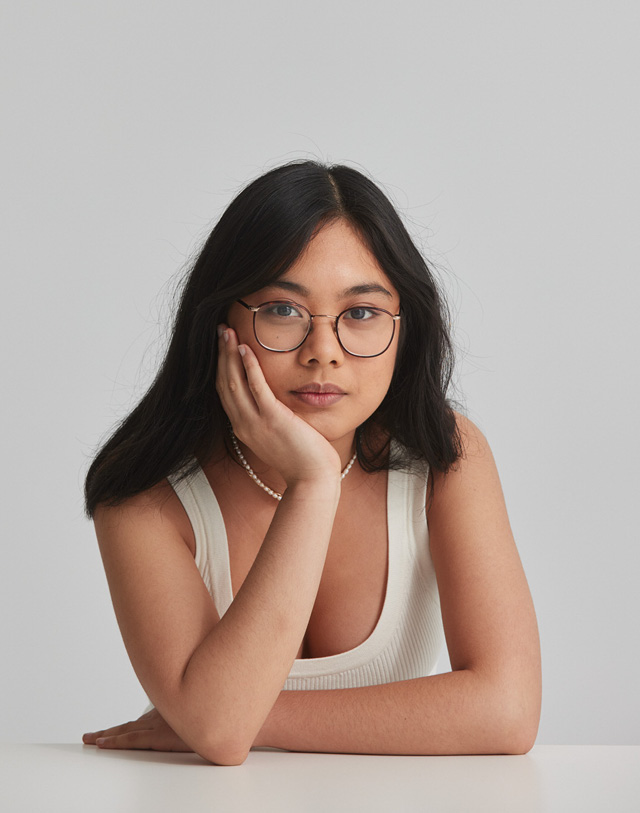

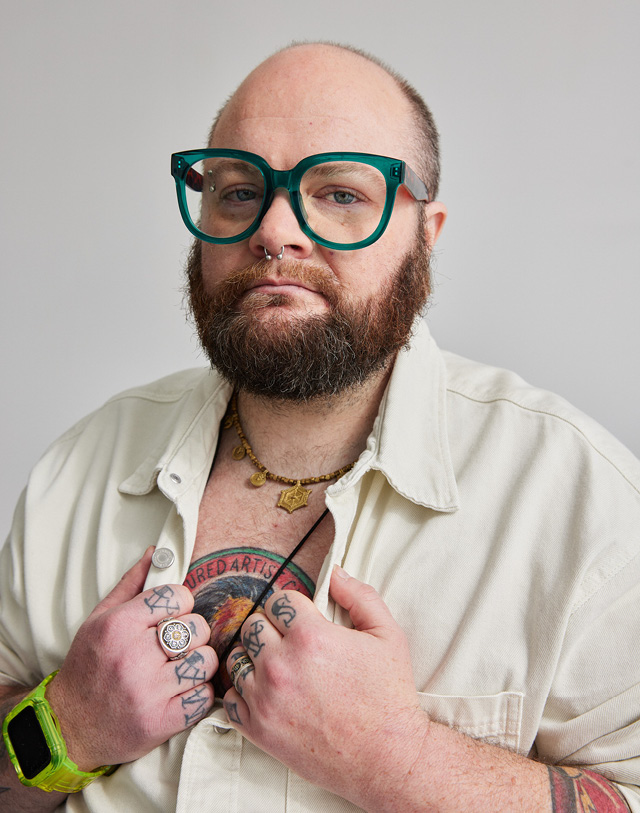

Dani Villafaña, 18
I was sexually assaulted on a public train in Sydney by a boy my age when I was 14 years old. At the time, I didn’t have the words to describe what had happened to me, but I knew that it hurt, I knew that I felt dirty and embarrassed and ashamed.
A few months later I called Kids’ Helpline, and it was only then that I realised what had happened was assault. The next day I told a teacher at school.
The cops chose not to press charges, telling me that the perpetrator didn’t know he had done anything wrong and that next time I should speak up, say something, scream even.
I knew this was wrong. I felt angry that he would face no consequences for what he did to me, but even more than that, I felt angry at myself for being so naive to believe that the justice system had my best interests at heart.
I knew this was wrong. I felt angry that he would face no consequences for what he did to me.
Last year, Australia reached a critical moment in the fight against gendered violence. I was already very involved in activism, having organised School Climate Strikes across the country, and organised a snap rally against sexual violence at Town Hall with my friend, and very staunch activist, Erin O’Leary. From there, I began sharing my story on a larger scale, with Lisa Wilkinson on The Project, and other media outlets.
I realised that by sharing my story, I was able to help raise awareness about just how broken the system is for young survivors, especially those from migrant and culturally and linguistically diverse backgrounds like mine.
Turning my anger into action felt almost cathartic, and helped me heal from some of the trauma the system had burdened upon me.
The past year has sparked some really important conversations around how we approach gendered violence in Australia, but it’s left out some really critical voices and experiences.
Australia isn’t yet prepared to reckon with the incredibly high rates of sexual violence that our young people experience every day. We have no idea how to handle instances of rape and abuse when the perpetrator is also under the age of consent.
We need to see more people talking about intimate partner violence between young people, and better support for survivors and their families when this does happen. We need teachers and school counsellors equipped with the tools to safely handle these situations, and we need to see adequate funding for the services which provide these crucial services.
Jayke Burgess, 43
When I began this journey, there were no group programs or support networks for GLBTQI+ people. It was actually one of my lawyers who encouraged me to share my journey: As a transgender person, there were different nuances to my story
I have this strong desire for victim-survivors to know that domestic violence isn’t “just hitting”. I experienced family and domestic violence for 10 years, which included all the types of violence imaginable. Financial, psychological, physical, emotional, sexual violence, religious violence, coercive control, stalking, harassment… Let’s just say it was not an easy experience to survive. The ‘nuance’ is the GLBTQI-specific behaviours: like using my gender and sexuality as a weapon in family court and threatening to out me, which they eventually did.
After sharing my story for a few years, I was involved in a program called Voices 4 Change with Domestic Violence NSW. They equipped me with the skills and knowledge to help me talk about family and domestic violence through a nuanced lens, and also to advocate without increasing my own trauma. From that platform, I moved into consultancy work with non-government organisations.
People with lived experience must be engaged in designing and developing [services], because the evidence shows that this results in greater outcomes for victim survivors. That motto – ‘nothing about me, without me’ – is how we build better services.
People with lived experience must be engaged in designing and developing [services].
I want to see the family court recognise the effect of domestic violence, and particularly coercive control, on child-rearing. I want judges trained and equipped to recognise and respond to abuse. I believe that [we should] teach people what healthy relationships and consent are from an early age [and] teach people to recognise the early warning signs in relationships.
For other victim survivors wanting to move into advocacy: This is not an easy thing to do. You will be triggered, you will feel distress, you will need support. Having a strong support network, strong emotional self-awareness and therapeutic avenues to access support is essential. Also, your knowledge is equitable to professional knowledge – it’s not the same knowledge, but it’s equal in value. Expect organisations to pay you for your time and to pay you a good income. You have an expertise that many do not, and that knowledge is invaluable!
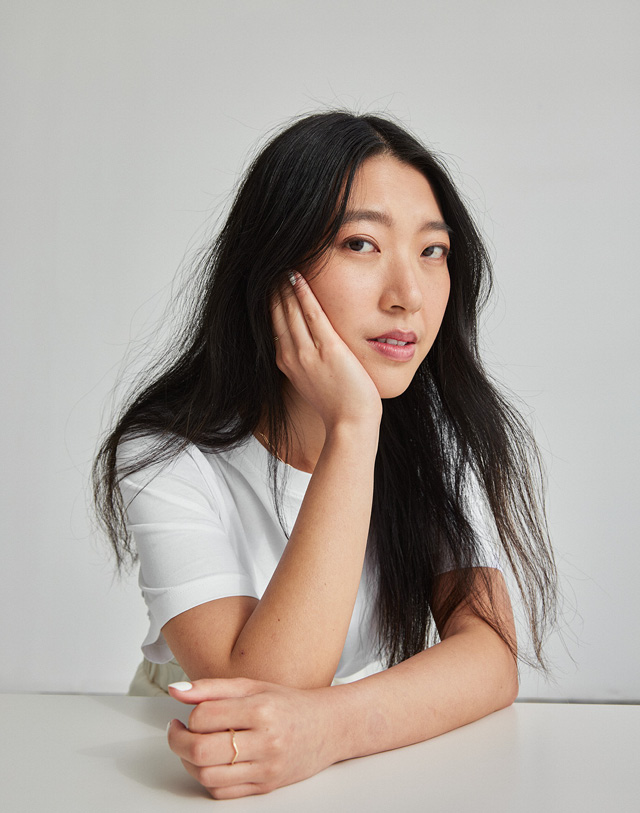

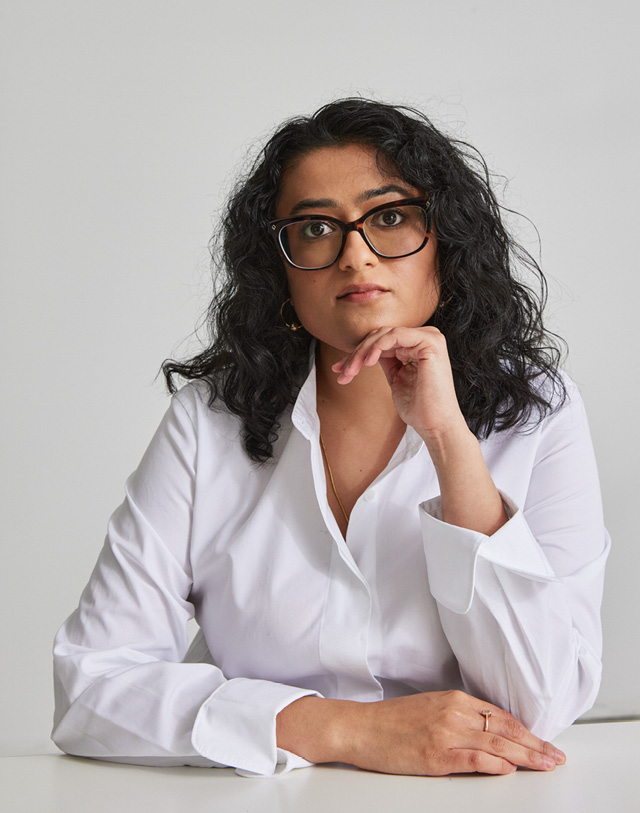

Brenda Lin
I lost my family to homicide in 2009, and I am also a sexual assault survivor. I know first-hand the loneliness and isolation that can be felt as a victim of crime, but also from going through the legal process.
One of the most difficult parts of my journey undergoing the legal process, was giving sexual assault evidence in court. Giving evidence in court and recounting the incidents in detail was not only re-traumatising, but the fact that it was suggested to me that it did not happen, or that I perhaps was ‘confused’, or simply making it up, was hurtful and offensive. I know it happened.
Whilst I have been unlucky in the extreme sense, I have also been very fortunate to have really good support systems around me. [People] who made sure I had a future I (and my parents) would be proud of, that I had somewhere to live, food on the table and [who] encouraged me in whatever my life aspirations are as well. I am and will always be grateful for that.
What happened was really bad, but I’ve been very fortunate to have really good support systems.
I co-founded the Survivor Hub, which is a peer support network for sexual assault survivors. We provide safe spaces for survivors, to come together in Sydney, Melbourne and online. These spaces are a place for survivors to connect and support one another by sharing their lived experiences. Discussion topics have ranged from practical tips for going to court to different therapy options people have tried to how to engage with intimacy after assault.
There are a lot of inspirational people and fantastic work that is happening in this space, but there is still a long way to go. My advice to other victim-survivors is to know where to focus your energies. You can’t do all of it. Choose one area you’re really passionate about – one tiny thing you would like to change. Start there and focus on that. Then, see if you can find like-minded people around you, talk to your local councils, your local representatives, get in front of groups, conferences, or events, and share your ideas. Naturally, other people who have similar passions and interests will come and make the connection.
[As a survivor], I would really like to see more trauma-informed practices being implemented in our legal system, particularly for sexual assault matters. Some examples could include, involving expert witnesses in all sexual assault trials, hearing sexual assault matters in specialised courts, and more legal education on how trauma can affect memory and witness testimony.
For most major crime categories other than sexual assault, when a defendant is on trial, the question being asked is whether they are responsible for the crime they have alleged to have been involved in. However, for sexual matters, the survivor is on trial, too – the trial tries to answer not only whether the defendant is responsible for the crime, but also, whether the crime even occurred at all. Unfortunately, this process of questioning the survivor’s integrity, credibility, memory and character is extremely harmful.
Dhanya Mani
I experienced violence as a parliamentary staffer (after months of harassment from a colleague). Throughout the complaints process – during the entire period his behaviour was escalating, I was responded to with gaslighting, victim blaming and an outright suggestion that I should be thankful [for the attention].
It made me feel like I was going crazy. Even after the worst incident, where he came to my home [and forced himself on to me], when I spoke to female politicians about it, the response was that my political career would be over if I ever made a complaint. It was just absolute invalidation at every single point of the process.
Another experience [of sexual harassment] just made me feel convinced that there was something fundamentally broken about the structures of accountability at the highest levels of governance. And I just felt I couldn’t afford to not say anything.
Firstly, I had my own piece in Women’s Agenda, and then I escalated it from there.
[Because] I’d seen that women who told their stories were basically just turned into the objects of morbid public fascination… I launched a campaign called Changing Our Headline. I wanted to ensure that survivors would have an independent source of support they could go to. Ultimately, I’m pushing for something like this to be funded: dedicated support workers women can tap into when they make a workplace complaint.
As someone who was legally trained, I knew how to preserve evidence, how to document things. A lot of women don’t think that way – it’s not intuitive. And then they go to a lawyer who will say we’d love to help you, but we can’t, because you just don’t have enough evidence.
I can’t hope to progress to a reform agenda until we get people to care, and the way we get people to care is to change the way we tell these stories
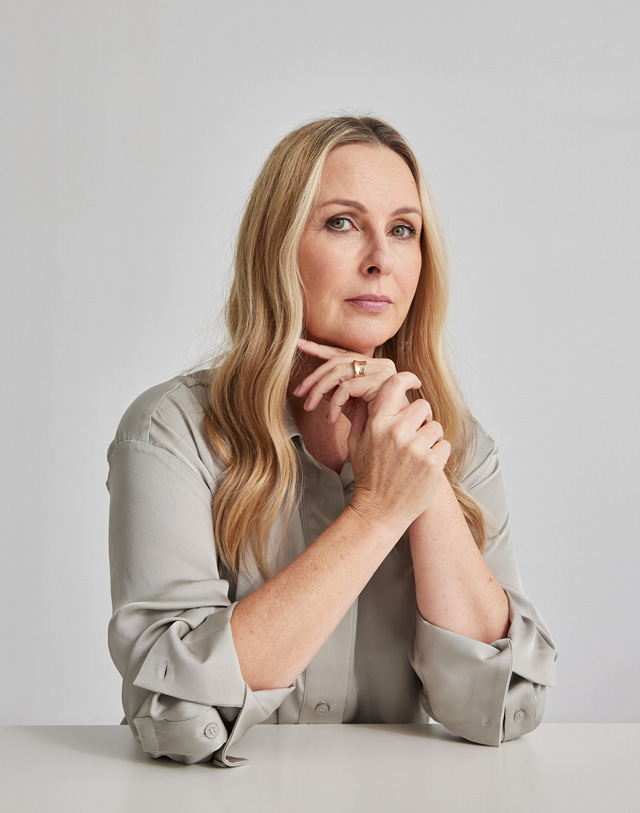

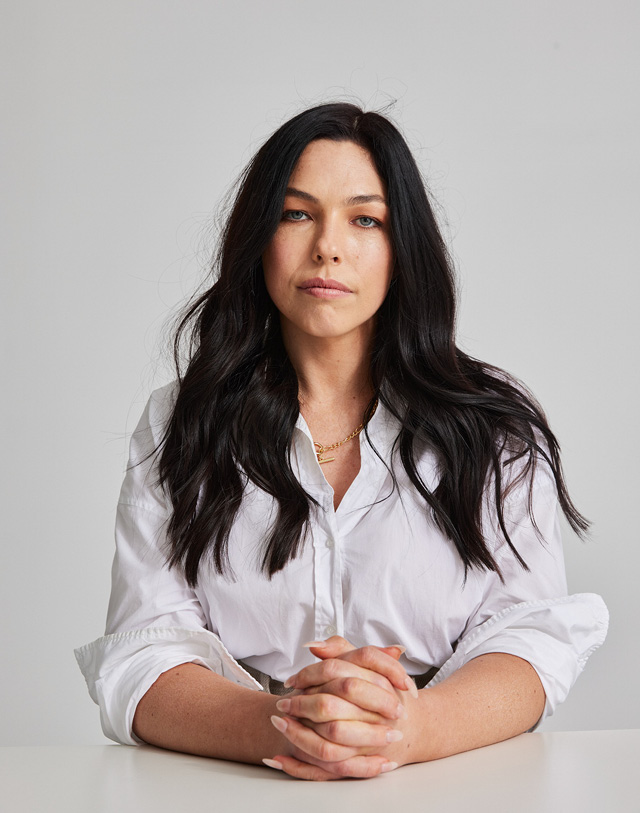

Louise, 50
This is actually the first time I have told my story publicly. Many of my friends and family know, as well as the incredible group I’m a part of, the Independent Collective of Survivors (ICOS), led by Lula Dembele.
My story starts at the age of four, being a victim of child sex abuse, which was perpetrated by a male family member over a five-year period.
At the age of nine, something inside of me broke. I stood up to my perpetrator [but] it wasn’t until I was 15 that I realised that other children were in harm’s way, too. I went to someone who would believe my story since so many other people didn’t.
The police were called, and the perpetrator was arrested. On the day of the court case, I was fully prepared to testify, but was told I was not needed. That day the perpetrator was given a slap on the wrist. I felt abused, betrayed, unprotected, abandoned and unheard. In my adult life, I continued to experience abuse in the forms of assault, domestic violence and harassment. It wasn’t until I bravely broke the chains of my past through soul work, that I was healed to the point of being able to step into advocacy.
[Today] my passion project, Men of Manners, focuses on teaching young male teens social and emotional literacy, to help them step into empathy and compassion without losing their perceived sense of masculinity.
My focus is on perpetrators. How do we prevent this national shame? The only way to protect our daughters is to educate our sons. And the truth is, we need to align with strong healthy men to do that.
How do we prevent this national shame? The only way to protect our daughters is to educate our sons.
The change I want to see is, truly, people not being afraid to call someone out. So much child abuse happens within the home, where there is often a code of silence – that code needs to be broken. We need men to call out other men. Children have specific symptoms, visible and emotional, when they are being abused. We need to look out for them, believe them, and take it further for them. Protection is a necessity.
I have no doubt that more victim survivors will stand up now that we are seeing a momentum in the movement. I would advise to work to your strength, heal yourself as deeply as you can, and try to keep your ego out of sight. Infighting just drags other victims into another ordeal. We need to keep to the cause. This isn’t a fight we can afford to lose.
Amanda Morgan, a proud Yorta Yorta woman, 32.
I want to see more media coverage of survivors of gender-based violence who are Aboriginal and Torres Strait Islander, people of colour, the LGBTQA+ community and people with disabilities, because they have been historically excluded but are disproportionately affected by violence.
I was sexually abused by an immediate family member when I was infant and again when I was five. I was groped by a friend’s stepdad when I was 15.
I decided to [share my story after] attending Bettina Arndt’s Date Rape Campus tour hosted by the Macquarie University Liberal Society.
There, Bettina compared women to pot plants that need to be poked “to see whether they are wet or not” [and] suggested that women “get pissed so they don’t have to make a decision about whether they want to have sex or not. During the Q&A session at the end, I rebutted Bettina’s claims and shared my experience of child sexual abuse.
My story was recorded by an audience member without my consent and passed on to Bettina’s team (despite the event being advertised as non-recorded for safety purposes). Bettina’s team uploaded the recording to YouTube with a voiceover describing me as a ‘tragic’ person who had ‘hijacked’ Bettina’s talk.
I ended up writing a 10-page victim impact statement about how it felt to learn that my story had been published on YouTube without my permission because I was retraumatised by the process.
Following my experience with Bettina Arndt, I attended a Reclaim The Night Protest on Gadigal Land in 2020, was appointed Co-Convenor for 2021 and 2022, and started speaking at Youth Against Sexual Violence rallies.
I am building a community called Make A Seat Australia where underserved and historically excluded survivors can come together and decide what comprehensive, trauma-informed story-telling looks like, with an open letter asking the media for a physical seat on panels, in op-eds, interviews, with the support of prominent advocates.
The goal is to not only facilitate opportunities for storytelling (which is a huge part of my culture) but also to ensure that those opportunities are trauma-informed, and survivors get to determine how their story is shared.
For victim survivors who want to get into advocacy, my mentor Cindy Blackstock has this advice: “Go after the cause of the cause. Communicate with the public. Frame your objectives so that the public know what we are after. Develop ways people can make a difference in under two minutes. Go into events with agendas. Tell people how they can be Changemakers. Don’t do days of action. Make it go on all year.”
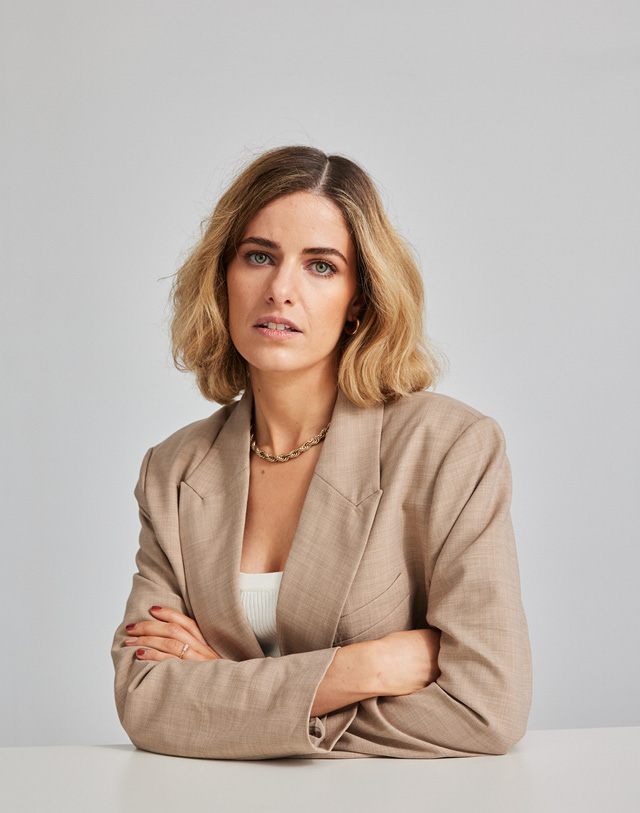

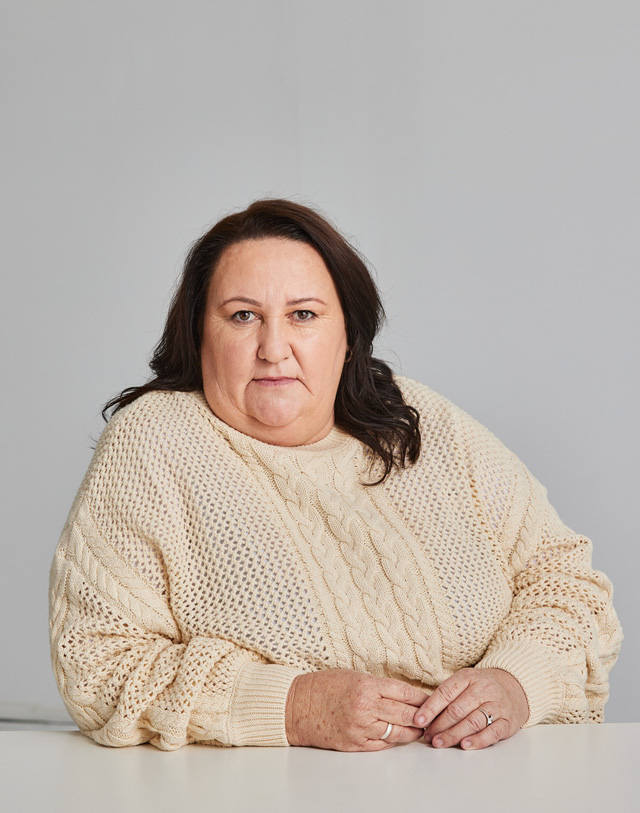

Scarlett Franks, 28
If you made a TV series about my life audiences would not believe the number, let alone the cartoonish cruelty, of bad things that happened. We would like to believe no one is that unlucky, but the consequences of betrayal and violation in early life often lead victims to face betrayal and violation in adulthood, too.
I was sexually and psychologically abused growing up in an always-volatile, sometimes-violent household; I found myself collecting my belongings from said household with a police escort and then couch-surfing in the last 18 months of high school; I was gang-raped a week before the HSC.
The criminal justice process and social fallout that followed made my early 20s a nightmarish period.
If you made a TV series about my life audiences would not believe the number, let alone the cartoonish cruelty, of bad things that happened.
I started sharing my story the minute it was safe for me to do so. Anger prompted me. Anger at the lack of political will to recognise the true severity and ubiquity of child sexual exploitation in our country, let alone do anything about it.
For my 21st birthday I saved up $400 and took myself to a criminology conference in the hopes of meeting other outraged people. From there, I volunteered across the youth sector, mental health services, the criminal justice system, policymaking, and in education. I took up every public speaking, television, and print media opportunity that came my way.
I want child sexual exploitation recognised as a national security and public health crisis, with a commensurate whole-of-government response. I want men, boys, and society at large to recognise the real-life impacts of pornography production, consumption, and culture. I want the health and disability sectors to recognise the profound, sometimes lifelong impacts of child sexual abuse, such as dissociative disorders, traumatic brain injury, self-harm, and chronic pain. I want my fellow members of the LGBT+ community to reject and stand up against attempts to rebrand child sex offenders as members of the community of marginalised sexualities. I want to see sex offenders who repeatedly victimise children remain incarcerated.
My advice to other victim survivors who want to get into advocacy is be discerning – be ruthless – with the opportunities that come your way. It is flattering to be invited to lend your voice, but don’t be tempted to do so unless the campaign and its proponents are aligned with your values. Don’t do anything for free unless it’s for another advocate whose work you admire and respect. Always discuss opportunities with someone who loves you enough to never wish fame upon you.
Jane Matts
I advocate to change the family law system, both in government and within the system itself.
Terrible things are happening in our family law system – children are being ordered to live with parents who have been assessed by child protection as a ‘risk of harm’ to them. I have worked on these cases – the outcomes are shocking. But the public generally does not hear about them, because family law is a place of secrecy; thanks to privacy legislation, it can be difficult to report on.
To make these issues real, we need stories – that’s how we will change the system.
We need stories – that’s how we will change the system.
[I started sharing my story when] a friend sent me a link about Voices for Change, a survivor advocacy program funded by the Luke Batty Foundation – Rosie knew that platforming lived experience could change lives. Renata Field ran the program, and her intelligent, caring leadership in this space helped all of us to grow our voice, and learn how to convey key messages to the media.
I experienced coercive control, particularly financial abuse and physical abuse. I had a knife held to my throat, in front of my son – my ex told me how easy it would be to cut my throat.
He made awful jokes about me that weren’t funny, he would joke about wanting to kill me. My children and I slept in one room, with me by the door, and I slept in clothes that could double as pyjamas. My husband told me his business wasn’t going well, so I paid for everything: rent, mortgage, school fees, food, utilities, holidays. The more I gave the more he took.
After I left, I received the child support papers: he had been earning up to $300,000 per year, yet not paying a cent towards our family.
In my opinion, there are two pillars to advocacy. One is to work for change, and ensure things are better for other victim survivors. The other is to let victim survivors know ‘we have your back, and we understand what you’ve lived through’.
I have sat and cried with fellow survivors’ countless times – acknowledging their pain, acknowledging the trauma but also sharing the stories of recovery. These experiences show us what we can do, and that there are options.
One thing I find really hard as a lived expert is being put in a limiting box. I’m tired of having to prove myself – as victim survivors, we come from a position of lesser value no matter what our background. And yet, when survivors come together to lobby for change, we can have so much influence. Myself and a group of survivors recently lobbied the NSW government for an inquiry into family law. It’s important to focus on the work we are doing, and debunk the myth that we are broken and wounded. From lived experience comes innovation – we are so much more than how the media generally portrays us.
My Honours degree is in Verbatim Theatre and Theatre of the Oppressed. I had great training by working with acclaimed directors such as Augusto Boal and Neil Armfield. It seems that my whole life is now being geared towards using that knowledge and those skills. I just can’t stand by and do nothing.
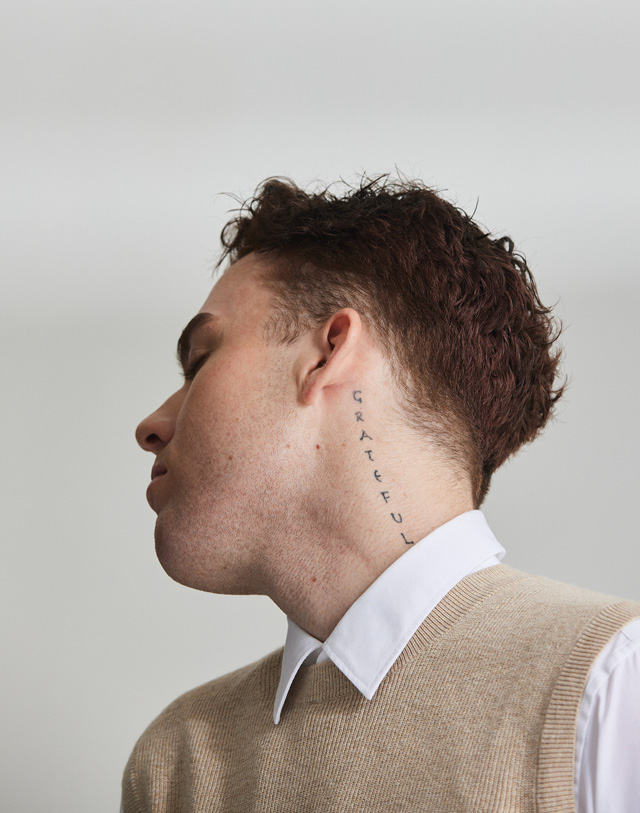

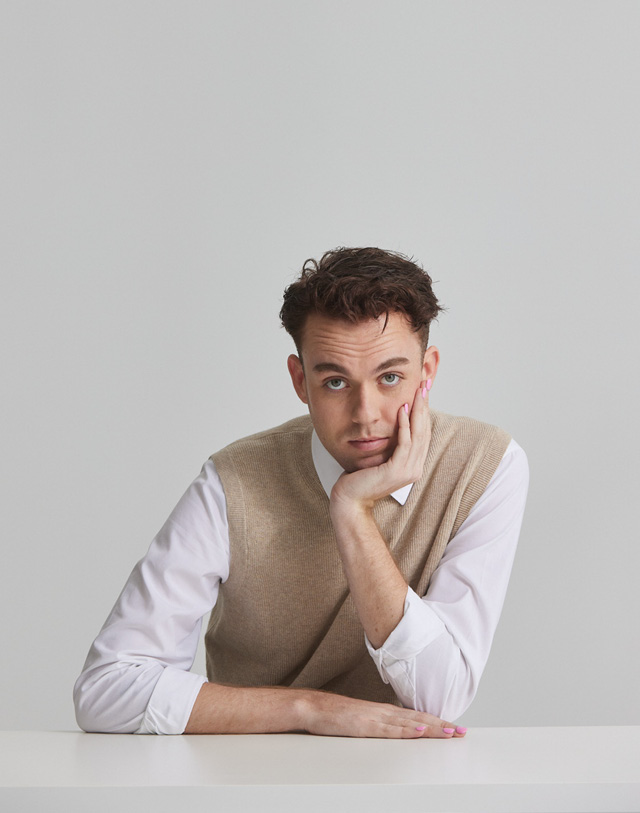

Harrison James, 22
My parents split up when I was 10… and [several years later] I ended up moving in with my father and his new wife from the Philippines (my stepmother). It was after I moved in that my stepmother started grooming me.
After years of an absent father, and an absent mother, this filled a void within me at the time. That grooming very quickly led to physical touch, kissing and sexual activities. I was molested by my stepmother from the ages of 13 to 16.
The sexual activity stopped when I was 16. [When I was 19] my stepmother suddenly fled to back to the Philippines and falsely accused me of rape. So, I had to come forward with the truth: the fact I was taken advantage of as a young boy.
After this ordeal, I became suicidal. I was admitted to a psychiatric rehab and diagnosed with Bipolar-2 as a direct result from what happened to me. The rehab process was intensive, but it was the best thing that ever happened to me.
After exiting rehab, I wanted to help people. In March 2022, I uploaded [my story] to Instagram [to] reclaim the narrative. This video had a bit of a moment, garnering over 35,000 views, solidifying a following for me on the platform, which I use as my means to advocate.
In March 2022, I uploaded [my story] to Instagram [to] reclaim the narrative. This video had a bit of a moment.
After releasing the video, I received a lot of messages of people confiding in me. So that inspired me to keep going and led to me become an ambassador for Polished Man, a foundation dedicated to ending violence against children.
I also started a clothing brand, where a portion of the proceeds go back to Polished Man. I’m also doing things that can inspire change within government, including [speaking at] a Roundtable for Youth Action NSW with other advocates.
I [want to] change community attitudes and redefine masculinity. I have faced backlash and criticism from people not taking my abuse seriously, purely because I am a man [or] was a boy at the time. But abuse does not discriminate… it can happen to anyone and come from anyone. Predators come in all different shapes and sizes… it could be the teacher or the footy coach, or in my case, a 5ft-Filipino woman.
The act of sex is the punishable crime, but it is of my opinion, that it’s the acts around the event(s) that cause the trauma – the “don’t tell”, “keep quiet”, “watch what happens if you say anything”. It’s that fear, that constant policing of your behaviour, the holding of the secret that causes the trauma
People don’t understand why, if you have been abused, you stick around? For me, and for a lot of child victim-survivors, it’s because we had no understanding that it was abuse. As a little boy, I did not have the language to explain what was happening, chaos was normality for me.
[We need to] educate children on boundaries and saying no if you’re uncomfortable. I also want to see perpetrators receive harsher sentences – victim-survivors spend a lifetime with the consequences of the criminal’s actions, so why shouldn’t they? I strongly believe in harsher sentencing.
If you are thinking of getting into advocacy, I applaud you because that is such a brave move and I have the upmost respect for you. There is such power, bravery and courage in vulnerability and sharing personal stories; to quote my hero, Grace Tame, “When we share, we heal.” My advice would be, envision your end goal, then figure out the necessary steps you need to take from there. Never mute your self-expression for anyone else, because people gravitate toward people who are comfortable in their skin. Just rock being you – go for it!
If you or someone you know is at risk of or experiencing abuse, help is available. Lifeline: 13 11 14
Photography: Cybele Malinowski
Styling: Lucy Woods
Hair: Georgia Ramman
Make-up: Lorella Giannini
Photo assist: Callum Smith
Production: Anna Saunders




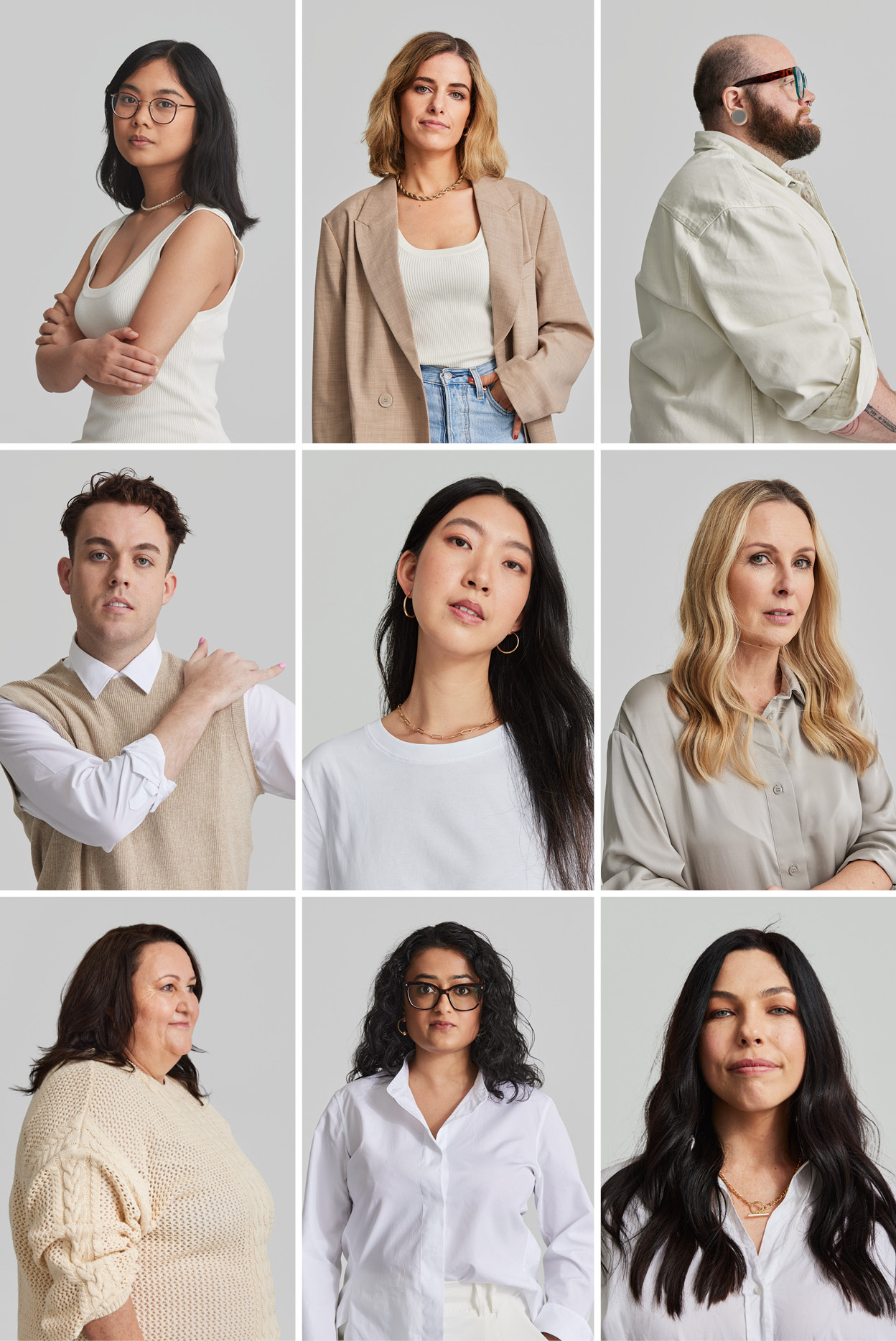
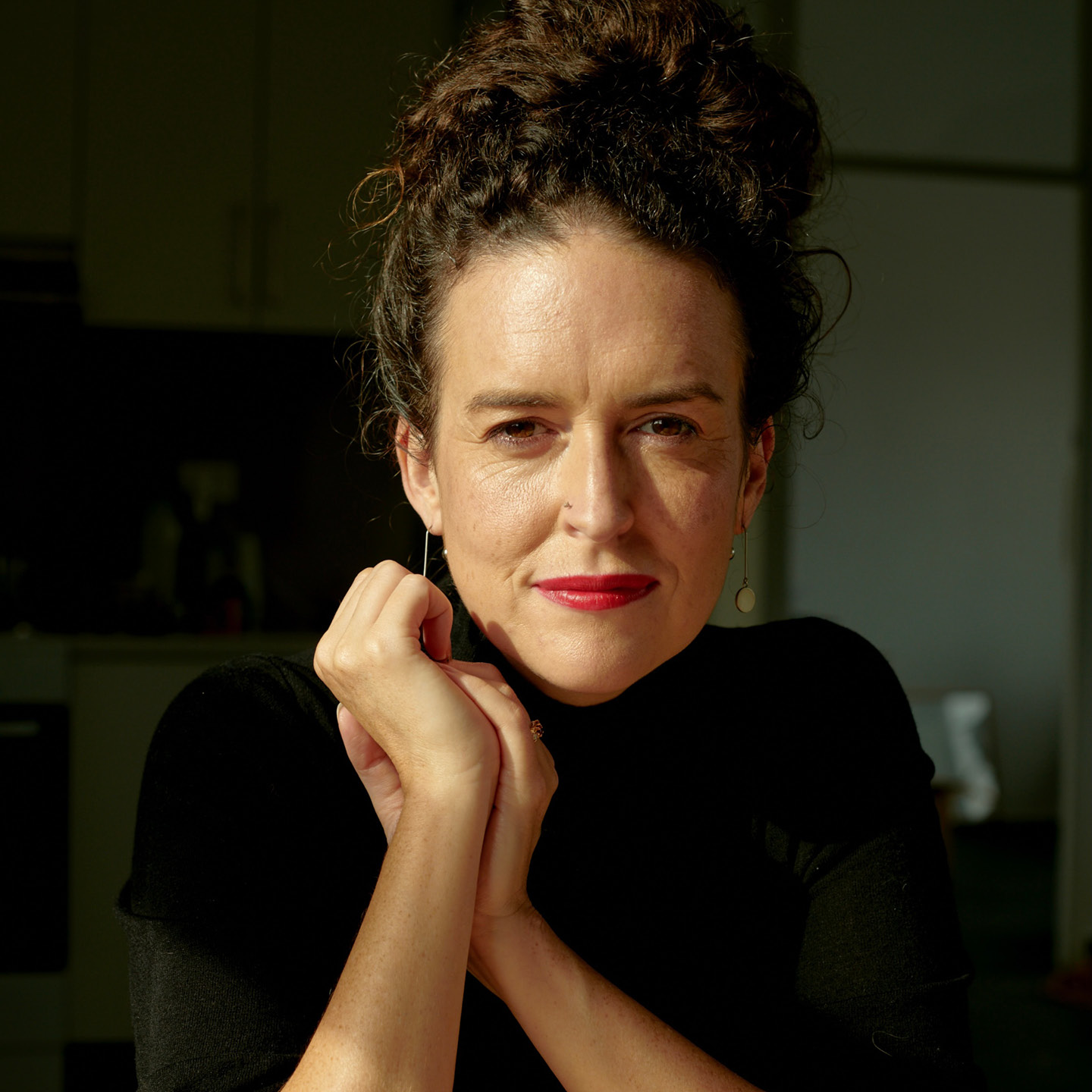

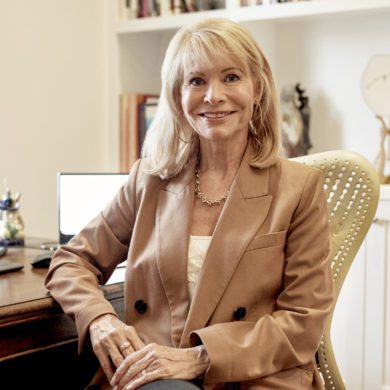
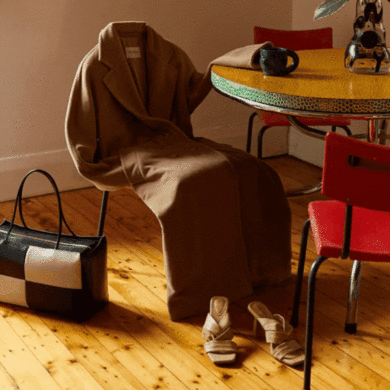
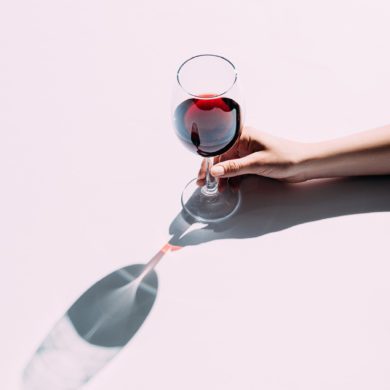
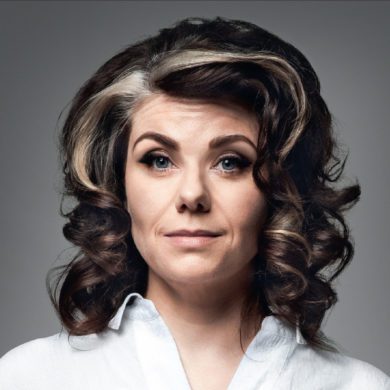
No Comments